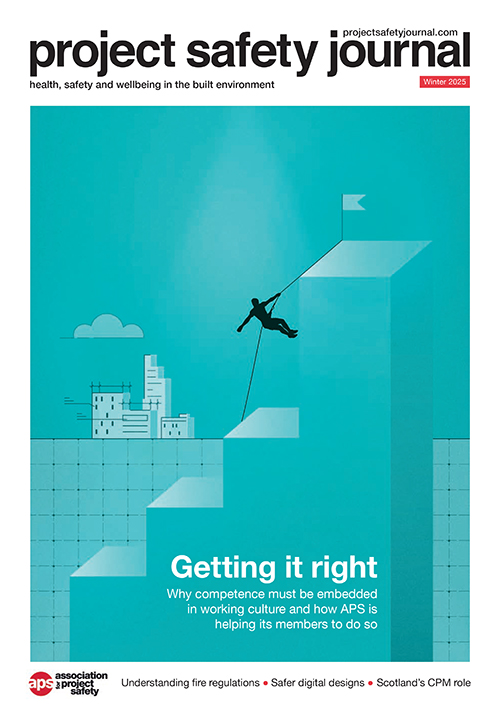
Acting with integrity is core to the new building safety regime. Organisations need to stamp out any poor behaviour and quickly, says Anthony Taylor.
A core intent of the Building Safety Act and the consequent new building safety regime is to ensure that all work across the built environment is done by appropriately competent people – and that they adopt an attitude which brings personal and individual integrity to all the work they undertake.
We are used to evaluating and being evaluated ourselves in regard to competence. This has previously been defined as ‘skills, knowledge and experience’. To this has now been added ‘behaviours’ (SKEB), and a newish term ‘organisational capability’ has been enshrined in law.
Looking at behaviours first, these have been defined in the British Standard BS 8670‑1:2024, Competence frameworks for building safety part 1: Core criteria – Code
of practice. At the higher level these are defined as:
- act ethically and contribute to safe outcomes;
- manage individual and contribute to organisational competence;
- demonstrate personal responsibility and accountability; and
- understand and comply with duty of care to others.
It is the task of the Industry Competence Committee (ICC), a statutory committee advising the Building Safety Regulator (BSR), to assist and guide improvement in competence (SKEB) across the built environment.
This begs the question as to what ‘good’ looks like. This is often delivered by way of agreed standards being met, and being independently assessed (by, for example, UKAS or Engineering Council accredited auditor organisations), and placed on an appropriate register.
In the past there has been a fair amount of reliance on the competence-related questions in the recognised ISO or British Standards such as ISO 45001, ISO 9000/90001 and ISO 14001. There are many others.
However, these have tended to rely on evidence of management of CPD and continual improvement, rather than set out a specific management system for the competence of the workforce.
Management competency
The BSR has been very clear that – other than the Register of Building Control Approvers, for which it is the governing body – it does not intend to maintain such registers. This is for industry to establish and manage.
Currently there is a great deal of work going on within the sector. One such piece of work comes from the Building Safety Alliance (BSA), of which APS is a founding member.
It recently published BSAS 01:2024 Organisational Capability Management System Standard – Management of Competence. This has been designed to provide guidance to organisations on how to make a judgement that they are employing an organisation that is appropriate for the project/job, and the processes that need to be in place to enable the outcomes.
Importantly, like PAS 8673, it can also be used to evidence organisational capability to the regulator and interested parties. The BSA is working with several professional bodies to deliver a register in the near future. Nevertheless – only time, and probably the ICC, will establish what ‘good’ looks like.
Industry itself operates a sub-committee of the ICC, the Industry Competence Steering Group (ICSG), which will work very closely with the ICC to these joint aims.
Expectations of personal integrity
My plea is for both individuals and organisations to take this very much greater focus on individual SKEB most seriously. Colleges and educational establishments should be very clear as to expectations of personal integrity and what this will mean to those coming into the built environment sector in the future, as well as for personal career progression.
I would also urge organisations of all sorts and sizes to begin work to establish a formal process to manage competency throughout their organisation. The writing is on the wall as to where ‘all this is going’ – we need individuals to be competent, and we need their organisations to facilitate their staff doing the right thing though excellence in corporate culture.
The Building Safety Act sets out very clear expectations as to what this means: not to turn ‘Nelson’s blind eye’. I have the pleasure in working with some who are proactively doing just this, hopefully more will follow their lead – promptly.
Anthony Taylor is chair of the Building Safety Alliance











